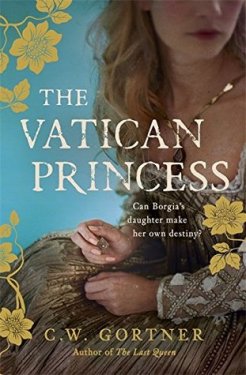
Like everyone else I read The Miniaturist, a clever piece of historical fiction, but I have to admit that its plot and setting were lost on me. I much prefer the interwar and mid-century era, and so I was thrilled to receive a review copy of Jessie Burton’s latest novel, The Muse. Set in the mid-1960s, Odelle Bastien, an inspiring writer, has left her Caribbean home to settle in London but it is not the postcard life she had dreamt of. By chance, she leaves her job at Dolcis (British shoe retailer) and begins a post at an art gallery, where she is mentored by the mysterious Marjorie Quick. Woven into Burton’s prose are flashbacks to Fascist Spain on the eve of WW2, where Olive Schloss a talented artist works on her masterpiece and falls in love with Isaac Robles, an impoverished painter who helps Olive to conceal her talents – an act which will have severe consequences in years to come. Through mistaken identities, past secrets and a burning ambition to be something quite different from what society says we ought to be, Burton has created something wonderful. A beguiling piece of historical fiction.

Infamy is merely an accident of fate . . . [but] infamy is no accident. It is a poison in our blood. It is the price of being a Borgia.
The Borgias are one of history’s most notorious families and today the name Lucrezia Borgia conjures up imagery of a wicked, blood-thirsty seductress. Presented as historical fiction, though based on fact, C.W. Gortner’s portrayal of the pope’s beautiful daughter is a sympathetic character study. From her upbringing at the Vatican, to her adulthood marred by accusations of incest and luring men to their doom with her arsenal of poison, has she been worthy of the reputation bestowed upon her or was she a pawn in her family’s game? Told from Lucrezia’s perspective and through his cast of characters, set to the backdrop of the Italian Renaissance, Gortner shies away from the well-worn clichés of Lucrezia Borgia’s legacy to rewrite her history.

What a treat it was to receive this book! 2016 marks Margaret Lockwood’s centenary and my biography, Queen of the Silver Screen, will be published in July ahead of the big event. So, it’s great to see this gem from 1944 re-issued with the lady herself on the cover. For those of you who might not know, Magdalen King-Hall’s novel was adapted for the screen by Gainsborough and released in 1945, as The Wicked Lady, to a new post-war audience. Gripped by rationing and the horrors of conflict, this historical drama – or bodice rippers, as they were known – divided the opinion of both the audience and its critics. Queen Mary, however, was a big fan! Based on the real life aristocrat and highway robber, Lady Katherine Ferrars, King-Hall’s protagonist, Lady Barbara Skelton, steals her cousin’s fiancé, marries him, but grows bored of country life in a draughty mansion with her endless days spent entertaining her spinster aunts. With the news of the notorious Captain Jerry Jackson sweeping through the land, she disguises herself as a male highway robber and sets off to get her thrills elsewhere. Having fallen in love with Jackson, Barbara and he become a crime duo, a partnership which will have dire consequences. A product of its day, The Life and Death of Wicked Lady Skelton has stood the test of time and I hope more fans of historical fiction can discover its charms.

Inspired by true events, this is the story of Lucia Joyce, the spirited daughter of the Irish novelist James Joyce, who was placed in an asylum by her father. Before her fate can be decided, she makes several attempts to escape the family home – she is the product of a mother who does not love her, and a father who, perhaps, loves her too much – but each effort is thwarted. When Samuel Beckett comes to work for Joyce, Lucia wonders if he might provide the escape she longs for. But there are family secrets, and letting Lucia out into the world threatens to expose them. Through her various sessions with Carl Jung, aspects of family life are explored, but it is not until the novel’s end, that the biggest secret of all is told. A study of a troubled young woman growing up in her father’s shadow in the Paris of the 1920s, Annabel Abbs brings Lucia Joyce to life. It is a haunting piece of historical fiction.

